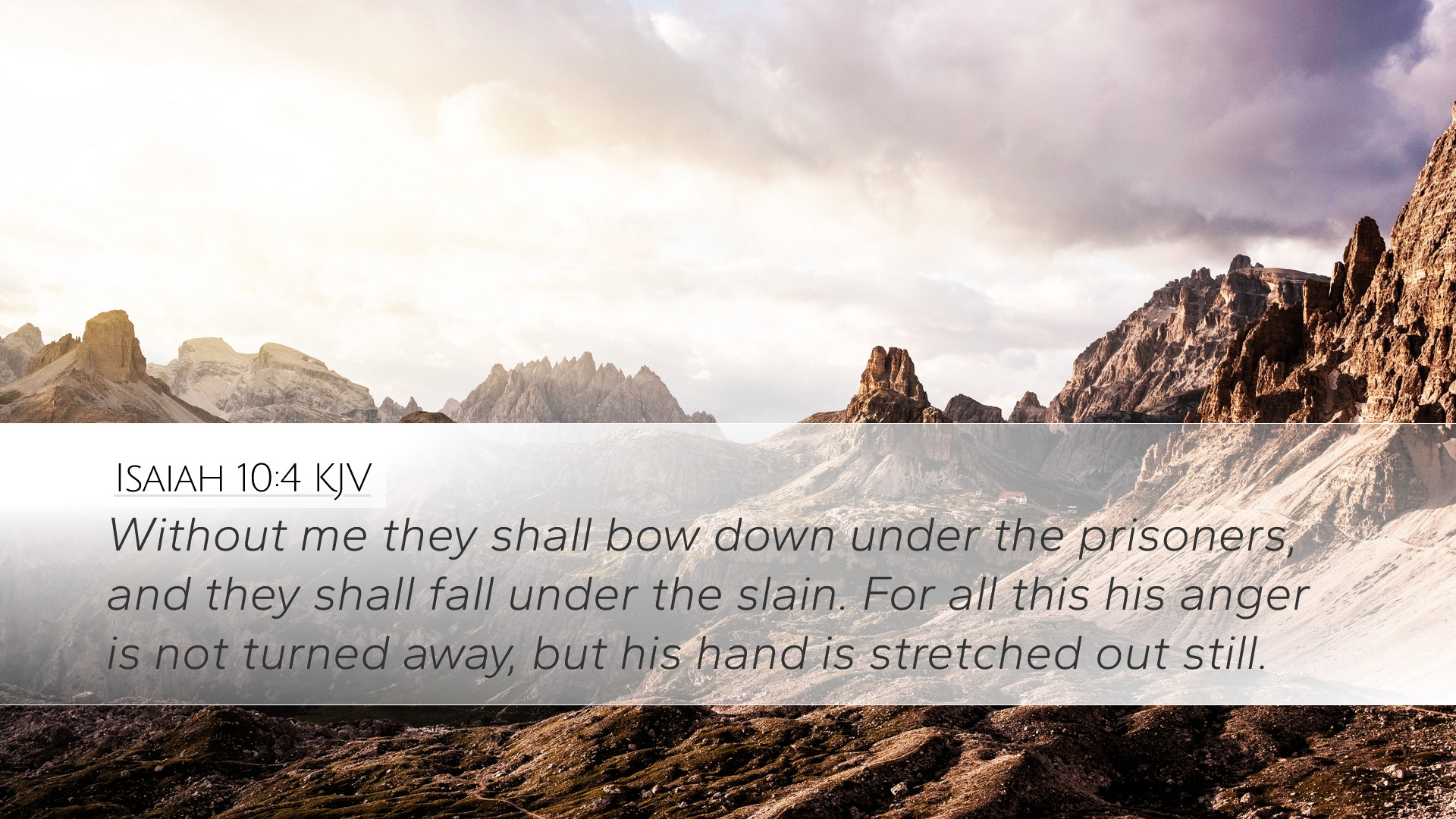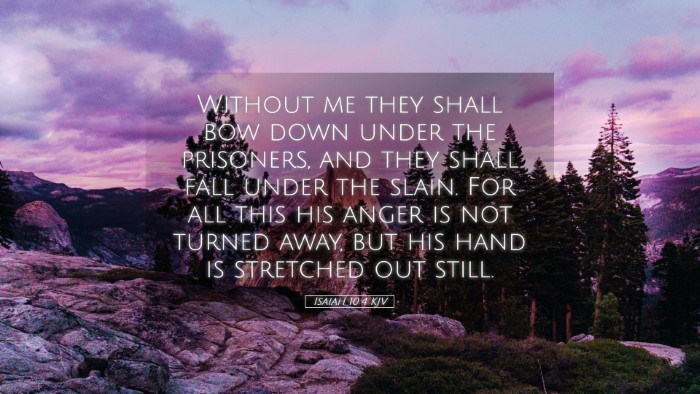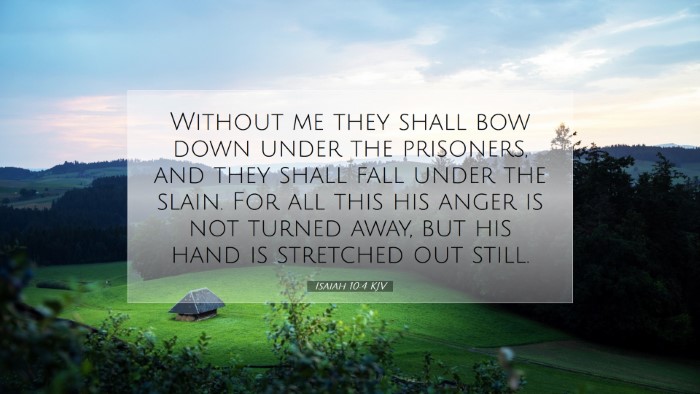Commentary on Isaiah 10:4
Text of Isaiah 10:4 (KJV): "And what will ye do in the day of visitation, and in the desolation which shall come from far? to whom will ye flee for help? and where will ye leave your glory?"
Introduction
The passage from Isaiah 10:4 serves as a solemn reminder of God’s impending judgment against the people of Israel. As we explore this verse, we can derive rich insights from various public domain commentaries, including those of Matthew Henry, Albert Barnes, and Adam Clarke, providing a multifaceted understanding of its implications for both its original audience and contemporary readers.
Contextual Analysis
This verse is set in a larger narrative where the prophet Isaiah conveys God’s displeasure with Israel's reliance on foreign alliances and their idolatrous practices. The emphasis on "the day of visitation" symbolizes a time of divine intervention, reflecting both God’s justice and His authority over nations.
Matthew Henry's Commentary
Matthew Henry indicates that this passage reflects a time of great urgency and impending calamity. He notes that the rhetorical questions posed in the verse are meant to provoke introspection about the people's misguided reliance on their own strength and political alliances. Henry emphasizes that in the day of judgment, there will be no refuge other than God Himself:
- The "day of visitation" refers to a period when God will come to judge or correct His people.
- The inquiries about fleeing for help highlight the futility of seeking assistance from worldly sources during times of divine retribution.
- Henry points out the importance of recognizing the sovereignty of God, indicating that human glory is transient and cannot withstand divine displeasure.
Albert Barnes' Commentary
Albert Barnes provides a more detailed exposition regarding the consequences of casting aside divine guidance for human schemes and alliances. Here are some core elements from his commentary:
- Barnes expresses that the "desolation which shall come from far" may refer to the Assyrian invasion, illustrating the realization of God’s judgment through foreign powers.
- He focuses on the concept of “glory,” which could symbolize the wealth, security, and pride of Israel. Barnes notes that when God’s judgment descends, these will offer no protection.
- His interpretation emphasizes a fundamental call to repentance and a return to reliance on God alone as the true source of security.
Adam Clarke's Commentary
Adam Clarke offers additional insights into the cultural and historical implications of this verse. He highlights the following points:
- Clarke connects the exhortation to the realities of Assyrian oppression, noting that the question posed reveals the hopelessness of the situation for those who have abandoned God.
- He also reflects on the "glory" aspect, interpreting it as the social standings and physical benefits that Israel may have sought in place of a humble reliance on God.
- Clarke lays significant stress on the idea that in times of crisis, it is the spiritual condition of the heart that will dictate the outcome: a call for the people to reevaluate their spiritual priorities.
Theological Implications
This verse brings forth crucial theological themes that are relevant for pastors, students, and scholars alike:
- Divine Sovereignty: Understanding that God is ultimately in control allows believers to trust in His plans despite circumstances.
- Judgment: The concept of divine judgment remains a critical aspect of God’s relationship with humanity.
- Dependency on God: This passage calls for a reevaluation of where individuals and nations place their trust.
Contemporary Application
In modern contexts, Isaiah 10:4 serves as a challenge to individuals in their personal lives, churches, and nations:
- Church leaders are reminded to cultivate dependence on God rather than secular solutions and alliances.
- Believers are encouraged to reflect on what constitutes their "glory" and whether it distracts from their commitment to God.
- This verse invites introspection about the consequences of sin and the need for genuine repentance and return to God.
Conclusion
Isaiah 10:4 resonates as a profound warning about the consequences of forsaking reliance on God. The collective commentaries from Matthew Henry, Albert Barnes, and Adam Clarke articulate a powerful message about divine visitation, the futility of seeking worldly aid, and the ultimate supremacy of God’s judgment. In a day when various uncertainties loom over believers, this passage beckons them back to a steadfast trust in the Lord as their refuge and strength.


